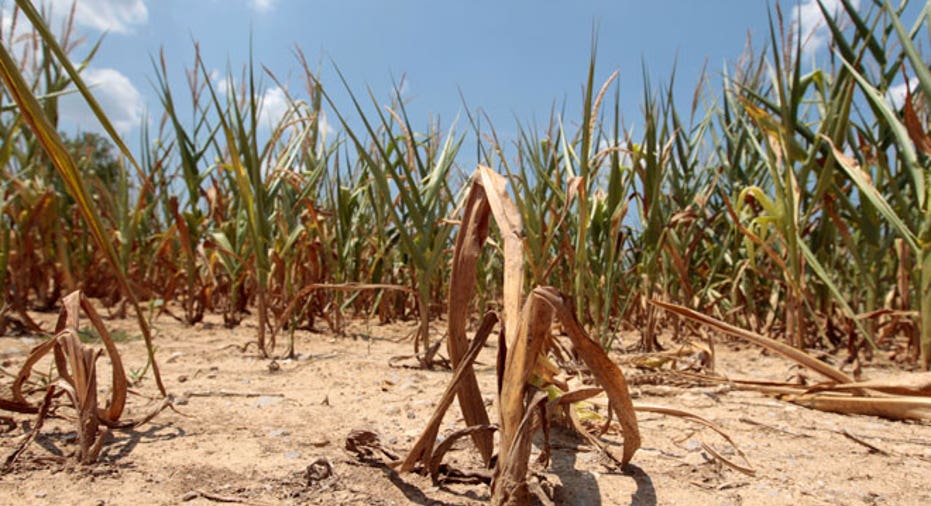Crop Insurance Losses From Drought Could Reach $20B

The drought that left farmland in the U.S. barren and ravaged crop production may add up to total crop insurance losses of more than $13 billion, disaster modeler AIR Worldwide said on Tuesday.
The company forecast that losses from the worst drought in a quarter century could reach as high as $20 billion.
After accounting for recoveries from the federal government, crop insurers and their reinsurers could be on the hook for $1 billion to $3 billion in losses, AIR said.
Dry conditions that began as early as the spring of 2011 depleted the moisture among corn crops, severely impacting this year’s season and squeezing the domestic supply.
Last year, dry conditions led to below-normal corn production, especially in Texas, which recorded agricultural losses of $7.62 billion with crop insurance losses of $2.58 billion. This year is expected to be even worse, slated to surpass the 1988 drought.
“After the hottest July on record, the 2012 drought is now expected to surpass the 1988 drought in terms of industry losses,” AIR said.
The 1988 agricultural drought was by far the most severe experienced in the last quarter century until this year. The total economic loss of the 1988 drought was $77.6 billion when adjusted to 2012 dollars, making it the second most expensive U.S. weather disaster since 1980.
By the end of July 2012, the area of the contiguous U.S. affected by severe to extreme drought increased to 42%, ranking this year’s drought as the fifth worst since 1895. The last time there was a drought of this severity was in 1956, however that had a limited impact on crop production in the Corn Belt since the lack of precipitation hit later in the season when crops had already been harvested.
This year, low crop yields from plants such as corn and soybeans, with yields as low as 40% below normal in some cases, have forced commodity prices higher. Since planting this spring, corn prices have skyrocketed by 142% and soybeans by 127%, according to AIR data.
While farmers are expected to not suffer a loss assuming they bought an insurance product that protects them against yield shortfalls, insurers “will not fare so well” AIR said.
“Many of this year’s corn and soybean policies will trigger a loss,” the company said.



















